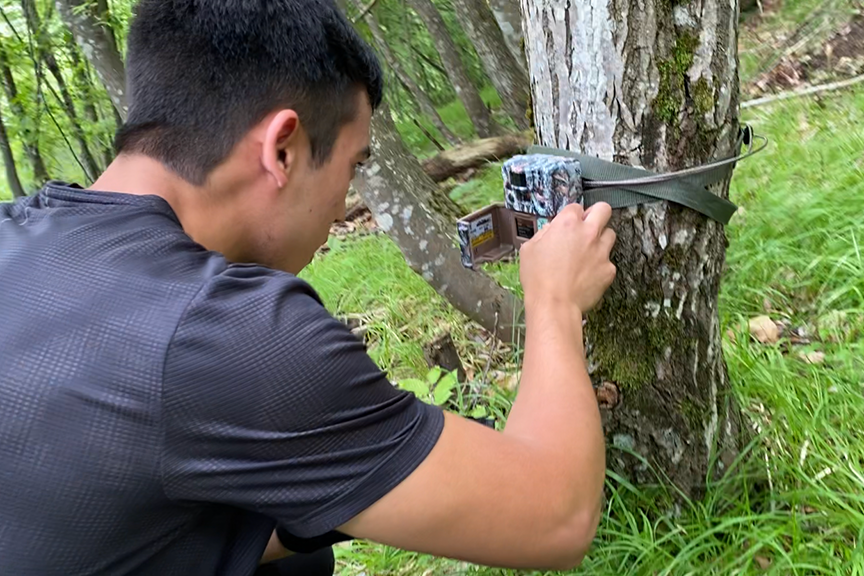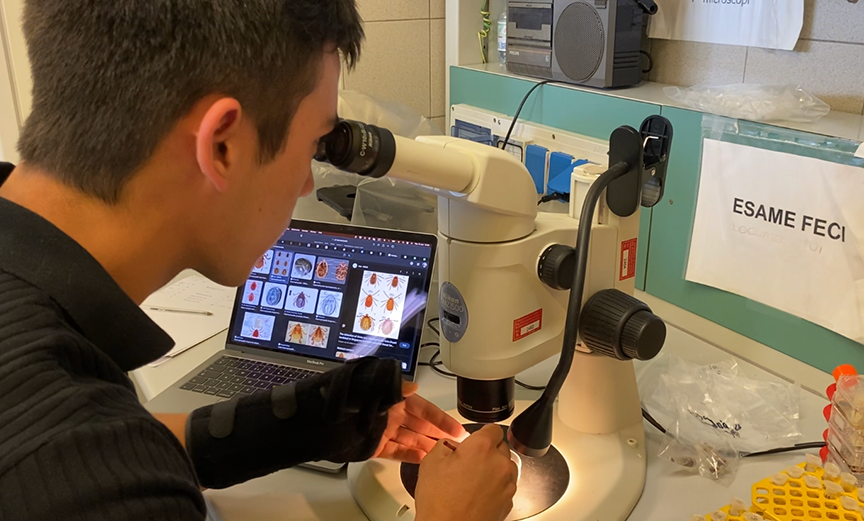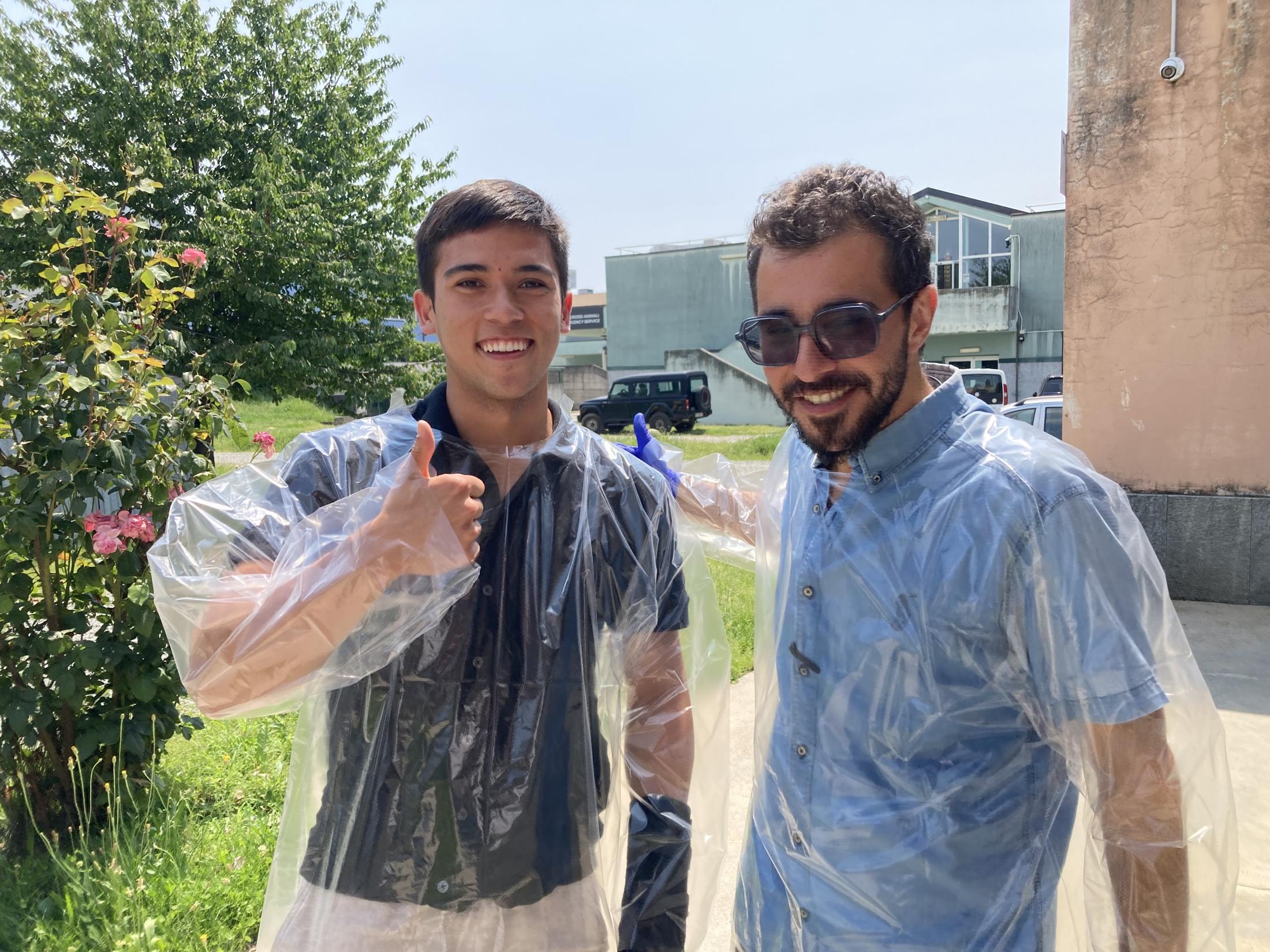Xavier Gathy
During the summer of 2023, I spent my time traveling, living, and working in Western Europe for an amazing three week externship experience, as well as a life-changing couple weeks of vacation afterwards. During my time there, I primarily worked in the northeast region of Italy, the Piedmont region, in Turin, before later traveling to Switzerland, Germany, and France for vacation after finishing my work. The externship was research focused and primarily centered around conducting epidemiological research connecting wildlife population density and movement of roe deer and wild boar to the ticks and other vectors they carry, seeing how common diseases they carry are then transmitted to humans and domestic pets, like cats, within the same area. The experience had everything I could ever ask for: extensive experience in the parasitology department of the veterinary school completing lab work, a beautiful national park just a couple hours away for field work setting up camera traps and collecting tick samples, and the rich culture and delicious food of the city of Turin.
On my first night in the city, I was immediately welcomed with open arms into what would be my home for the next three weeks, before embarking off for my first of many delicious Italian meals. Being my first solo journey outside of the country, I knew I would need to deeply immerse myself in the culture to get the most out of my time abroad. So for the next three weeks, from late May to late June, I balanced my time between the primary lab-focused research and exploring the city. In the lab at the University of Turin’s veterinary school, I worked with PhD students in the parasitology department on their research using camera traps that snap pictures when they detect movement. With the guidance of Dr. Stefania Zanet and Dr. Ezio Ferroglio, I shadowed and assisted the students in examining fecal floats for parasites, completing ELISA and PCR tests, as well as even assisting in some necropsies of local roadkill, particularly looking out for ticks and other ecto- and endo- parasites. My time at the lab greatly reinforced the material I had just learned at UC Davis, as we had just completed our gastrointestinal block, having just talked about conducting fecal floats and relevant GI parasites. During my time away from the campus, I made sure to absorb as much of the culture as I could, visiting the Turin Palace, multiple art and science museums, the biggest parks in the city, the famous Po River, as well as traveling to Rome, Florence, and Milan during the weekends. I’ve always been a huge fan of Italian cuisine, so I was in absolute heaven with the amazing delicacies they had to offer. I also gained a greater appreciation for their love of coffee (especially espresso) and late night meals, with many people still out eating at restaurants past 11!

I was lucky enough to be able to join the team a couple times for field work in the beautiful Piedmont mountains. These were long days, but provided some of the best memories as we trekked through rough terrain and rainy conditions to set up the camera traps on trees and sweep the area with a linen cloth for ticks. These strategically located cameras were then used to positionally track the movement of the wildlife, in combination with the tick samples being brought back and tested in the lab for identification and disease testing.

When my time in Turin came to an end, it was sad to leave the city that had become my home for three weeks, but more adventures awaited me as I traveled to explore other cultures in Switzerland, Germany, and France. Exploring Switzerland was one of the best experiences of my life, as I’ve always loved nature and Switzerland was a nature lover’s paradise, with the Alps creating beautiful landscapes and a unique mountain village culture. Afterwards, it was back to more Renaissance art museums and unique regional foods with Munich in Germany for a couple days, Nice, France for a few much needed beach days, and finally ending the trip with Paris for another culinary paradise.
Overall, my global programs trip was a life-changing experience with the externship itself providing unique, valuable experience that I would not have been able to obtain anywhere else, and the vastly different cultures expanding my awareness and understanding of European culture as well as how our own culture is a mixing pot of many different cultures. After this experience, viewing veterinary medicine in a way I’d never considered before has sparked a greater interest in other aspects of veterinary medicine and the field as a whole. This has only strengthened my interest in doing similar projects and keeping globally engaged and aware throughout my time in veterinary school and as a veterinarian.

